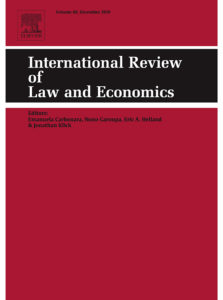Do criminal justice reforms reduce crime and perceived risk of crime? A quasi-experimental approach in Peru
| Year | : | 2019 |
|---|---|---|
| Author/s | : | Wilson Hernández |
| Area/s | : | Ethnicity, gender and citizenship |
Hernández, W. (2019). Do criminal justice reforms reduce crime and perceived risk of crime? A quasi-experimental approach in Peru, International Review of Law and Economics, 58, 89-100.
The objective of this study was to assess the effect of the new Code of Criminal Procedure (NCCP) on crime and perceived risk of crime in Peru. The progressive implementation of the NCCP allowed us to (1) use differences-in-differences (to control for the effect of time invariant characteristics) with matching estimator (to control for bias selection), and (2) to differentiate the impact based on whether the NCCP was earlier (2010) or later (2012) implemented. A large sample was used (N = 445,838). The impact of NCCP was evaluated on aggregated and individual measures of crime and perceived risk of crime, including violent crime.
Results show that the impact of the NCCP on crime was low and lost strength every year. Moreover, the impact is selective (it only affects some forms of crime) and differentiated (it reduces some forms of crime while increasing others). It also reduces the most common forms of crime committed with arms. On the other hand, the NCCP decreased most indicators of perceived risk of crime. Findings point to the need to better manage the implementation of the NCCP as well as to highlight the deterioration of its impact mechanisms in time (particularly its celerity).






